Last Updated on October 29, 2025 by Devour Tours | Published: November 22, 2019
Growing up between Spain and Italy, Enrique Rossi Fernández had one place that always felt like home: his grandmother’s kitchen.
Actually, make that both of his grandmothers’ kitchens.
“Since I was a kid, I’ve always been with them in the kitchen,” the Devour Barcelona guide and lifelong foodie said. “All the other cousins and family members would be in the swimming pool in summer, and I was in the kitchen with my grandmother. It was what I loved.”
For Enrique, cooking has always been a way to keep busy—”I need to be doing something. I can’t stand there without doing anything, and cooking was something that has always worked out for me”—but it goes deeper than that.
“In Spain and Italy, food isn’t just something meant for eating—food is a kind of religion. And to me, cooking is a kind of meditation.”
Born to an Italian father and a Spanish mother, Enrique grew up between both countries and even enjoyed a stint in the UK as a student. After coming back to Barcelona as an adult, he realized that there was a major opportunity for him to share one of his lifelong passions with visitors to the city. That came in the form of starting his own cooking classes.
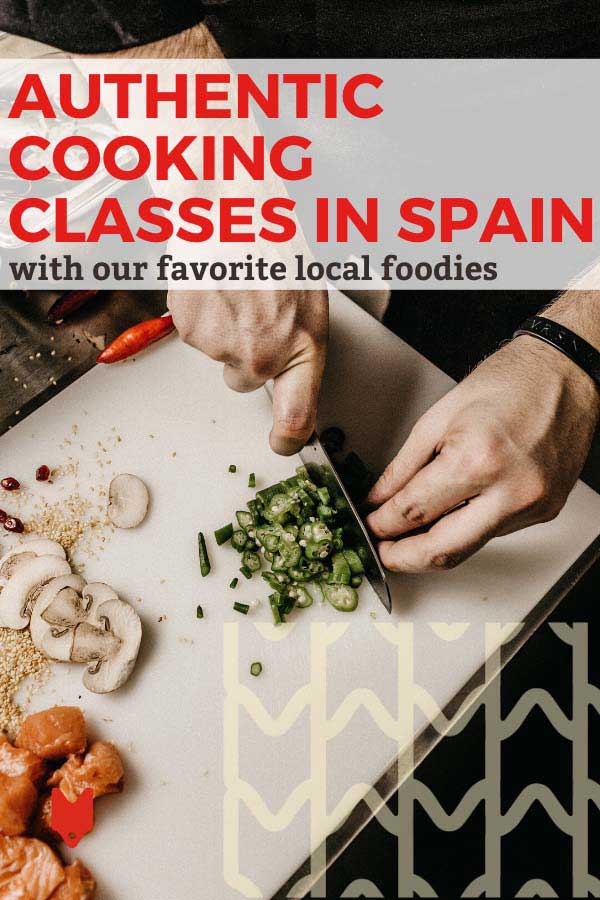
Going back to Barcelona basics
Enrique has always been a fan of taking cooking classes whenever he travels to a new place. To him, it’s the easiest way to get to know the culture of a place in a short amount of time. But when he started his initial research into the cooking classes available in Barcelona at that time, something didn’t sit right.
First, he noticed a lack of authenticity. And with that came a movement away from the traditional ingredients and products that have long set Barcelona apart.
“I found out that nowadays, here in Barcelona, we eat more meat than fish, even if we are a sea town. And it all has to do with the fact that fish used to be the food of poor people. Rich ones could afford the meat,” he explained.
“As soon as the situation changed in the 70s with the end of the dictatorship, people were able to get meat. This was something that was almost impossible almost five years before. So they started to eat much more meat than fish. I think we’re losing that connection to fish and seafood, and it’s a shame because it’s the best product that we’ve got here.”
It’s no surprise, then, that the star dish at Enrique’s Cooking Class is a traditional Catalan arròs caldós, or brothy rice, made with a homemade fish stock. “With a good fish stock, you’ll have a good rice dish,” Enrique said.
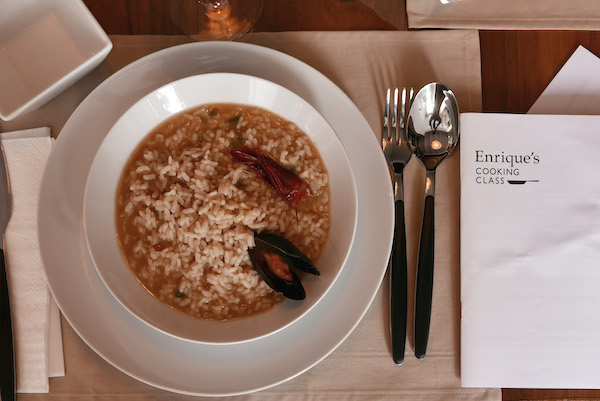
He describes it as a sort of Catalan paella, made with very similar ingredients to Spain’s most ubiquitous rice dish, with a bit of variation in the preparation.
That humble arròs caldós is the reason why Enrique does what he does.
“The flavor is overwhelming. It makes me happy just to think about it, and I want to transfer that happiness to other people.”
A local touch
Enrique said that one of the most rewarding experiences he’s had teaching cooking classes is seeing how people step out of their comfort zone and do things that challenge them.
“Here in my classes, people do everything. I show them how to slice something, for example, and then they make their dish. They prepare the dish, they plate it, they decorate it and then they eat it. People are impressed by what they can do, and the fact that it’s easy at the end of the day.”
But to get to that point, it’s important to start with high quality raw materials. Enrique said that a good product will not need much in the way of preparation or seasoning—it will shine on its own.
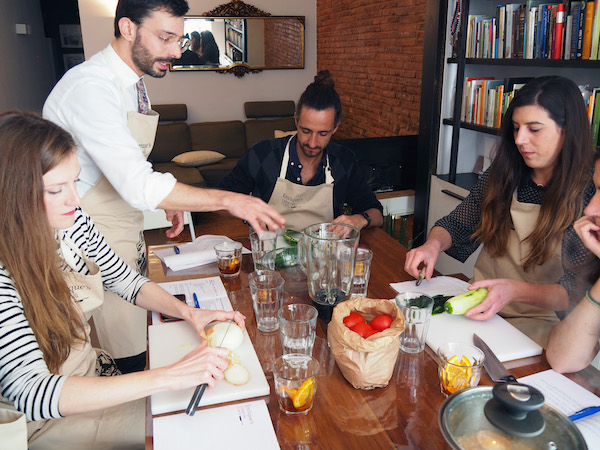
As you might imagine, there’s no better place to find these ingredients than the local market—a regular stop for Enrique.
“All the vegetables are from here, and they’re usually seasonal—it’s very farm-to-table. And the fish that I use all comes from the fish auction at Barceloneta,” he said.
Enrique buys the fish for his classes from the market vendors. But one of his dreams is to be able to go to the fish auction and buy it straight from the source.
“You can go and visit the fish auction , but you need to have a restaurant or something like that to be able to buy [the products],” he explained. “It’s something I’ve been trying to do for the last three or four years, but it’s difficult.”
Where a passion & a hobby meet
But Enrique’s love for the sea doesn’t stop there. When he’s not teaching cooking classes or guiding groups on Devour Barcelona tours, you’ll usually find him out in his boat, fishing in the calm waters of the Mediterranean.
Make that, wherever he happens to be in the world at that moment.
“When I travel around, I’m the guy with the fishing rod and all his fishing stuff. I’m stopped at every single airport because they don’t understand what I have in my luggage,” he explained with a laugh.
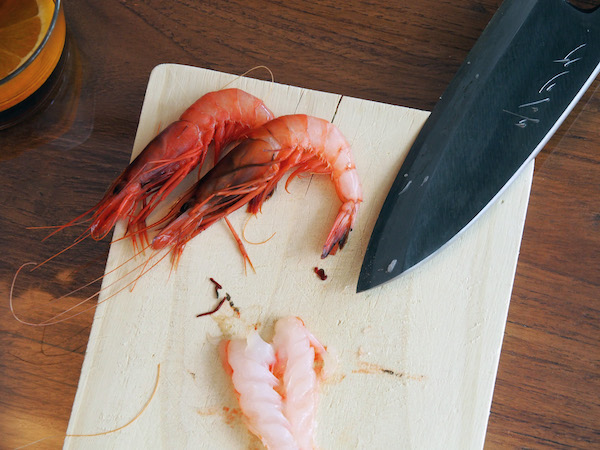
Fishing started out as a hobby for Enrique. As a child, he would go with his father, who hails from the seaside town of La Spezia near Italy’s famed Cinque Terre region.
While he can’t usually use the spoils from his fishing trips in cooking classes due to the unpredictability of what he’ll end up with, Enrique is always happiest when close to the sea—or in the kitchen. Luckily, they’re never that far apart.
“I’ve always lived very close to the sea. Even now, my house is five minutes away from it,” he said. It’s part of the reason why, in his classes, Enrique focuses on seafood above all else.
“I want to get back to the proper food that was from here, from this region,” he said. “To me, it’s much better than what we do nowadays in most of the restaurants.”
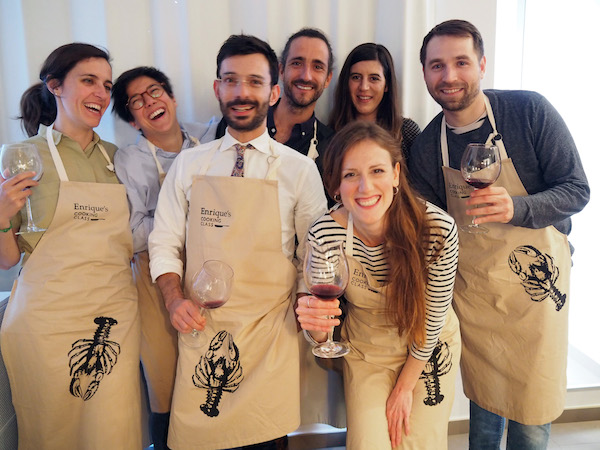
In the kitchen with Arantxa in Madrid
Curious travelers who are Madrid-bound have an equally excellent option in Spain’s capital in the form of Chef Arantxa Lamas. Like Enrique, she’s one of our guides here at Devour Tours, and she also runs cooking classes in her own home kitchen.
Throughout her childhood, Arantxa’s father’s job as a manager of various paradores (hotels constructed in historic buildings) took the family around the country. Though Arantxa has called several cities and towns in Spain home, her food loyalties lie with her family’s roots.
“My mother is from the Basque Country, and my father was born in Madrid to a Basque mother. All my family’s roots are in the Basque Country, so of course I think they have the best food,” she said, laughing.
After living in Ecuador for a few years in her early 20s, Arantxa returned to Spain and took a job in Gibraltar. The 12-hour car trip there from Madrid (“there still wasn’t a highway to Andalusia,” she explained) opened her eyes to how deep the love for traditional food runs in most regions of Spain.
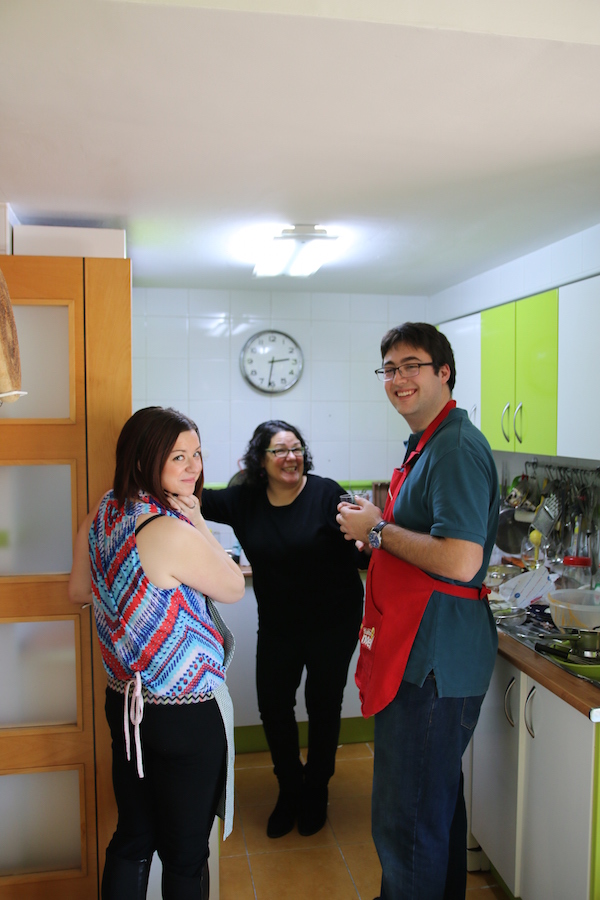
“People have been quite isolated in their own regions until recently, so they were very into their own food, their own traditions, their own recipes and their own ingredients,” she said. “They just didn’t know anything about all the other regions of Spain.”
But slowly but surely, all that is changing. And it’s taking root in Arantxa’s hometown of Madrid.
Creating a new opportunity
After finding herself laid off in the midst of Spain’s economic crisis, Arantxa decided to follow one of her lifelong passions: cooking.
“I had always wanted to know how to cook properly, because I’d been cooking all my life,” she said. “So I decided to go to cooking school with my severance money.”
Arantxa graduated from the prestigious Le Cordon Bleu cooking academy. She worked in a handful of food-related roles before launching her own cooking classes.
Her guests choose which items they want to cook from a curated menu that represents the best of Spain. She offers everything from homegrown favorites like cocido madrileño and gambas al ajillo, to Andalusian classics gazpacho and salmorejo, to incredible Basque seafood dishes. And thanks to her lifetime spent living and traveling in every corner of Spain, she can pull it off.
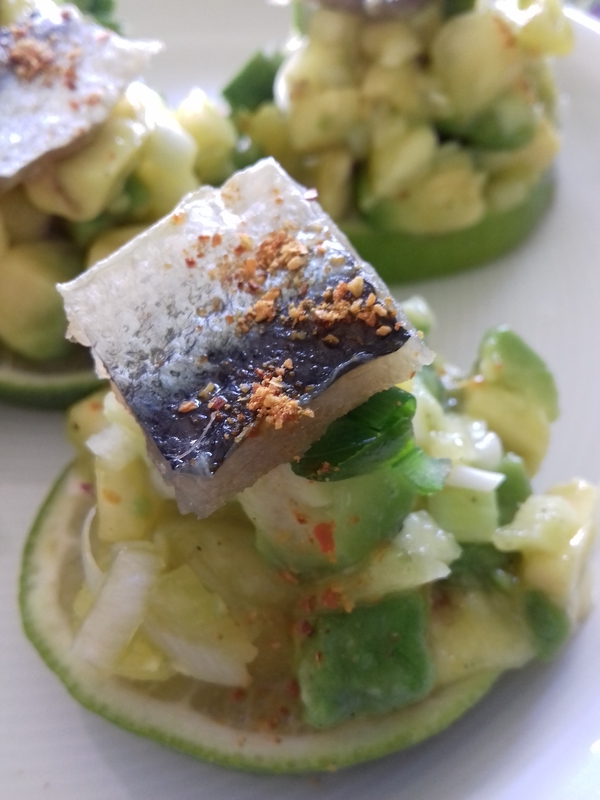
For Arantxa, the most rewarding classes are those spent with students who want to get involved and try something new.
“I love when people want to learn to make things beyond just the Spanish food they already know. Maybe they want to learn how to make a cod and raisin Galician empanada, croquettes, or stuffed pimientos de piquillo. It’s great to see people interested in doing something different.”
The best of Spain, with a local touch
Arantxa’s diverse cooking school menu reflects not just her upbringing in various cities and towns throughout Spain, but also the rich culinary variety of Madrid itself.
“The good thing about Madrid is that you can find food from everywhere,” she said. “If you want Galician food, Andalusian food or Valencian food, you can find it in Madrid.”
But despite this more cosmopolitan aspect, Madrid retains its own unique character in many areas—namely on Arantxa’s home turf of Carabanchel. It’s this local charm that gives Arantxa’s classes that extra-special touch that you can’t find in some of the more central, touristy areas.
“I have a little market around the corner half a block from my house. So I take my guests there, where everybody knows me. We chat with the vendors, I explain all about this neighborhood and the market, then we come home and start the class.”
Arantxa takes pride in the fact that her classes allow guests to see a different side of Madrid.
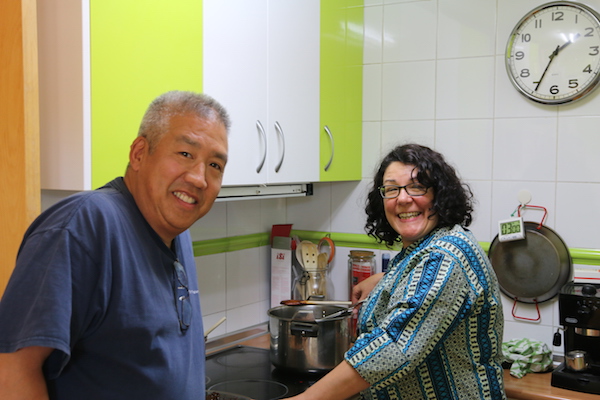
“It’s an opportunity for them to come and see a different neighborhood that’s not the touristic city center,” she said. “When you only stay in the center, you tend to think that all these new places—coffee shops like Starbucks—are where we [madrileños] go. I’ve never been to Starbucks in my life!” she laughed.
Carabanchel does feel like a whole new world—in the best way possible—compared with the Madrid most people know. And it’s all less than 40 minutes away.
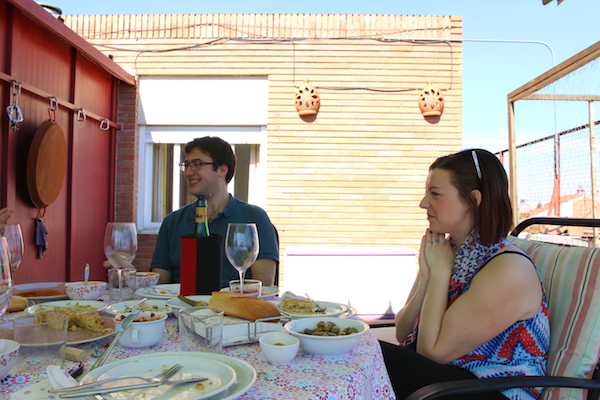
Supporting local entrepreneurs
The next time you’re in Barcelona or Madrid, sign up for a cooking class with Enrique or Arantxa respectively. It’s the perfect chance to learn more about the food culture of the city. And what better way to do so than with a local foodie who knows the cuisine like the back of their hand?
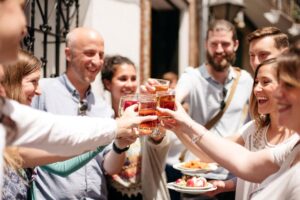
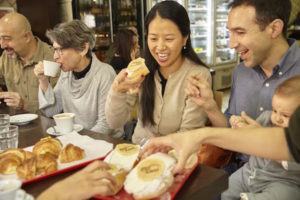
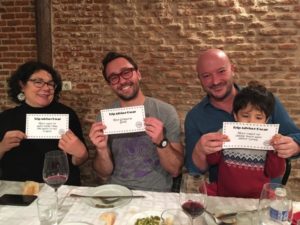






Madrid on a bike and cooking classes are experiences quite nice and we love them!!!
Thanks for reading!